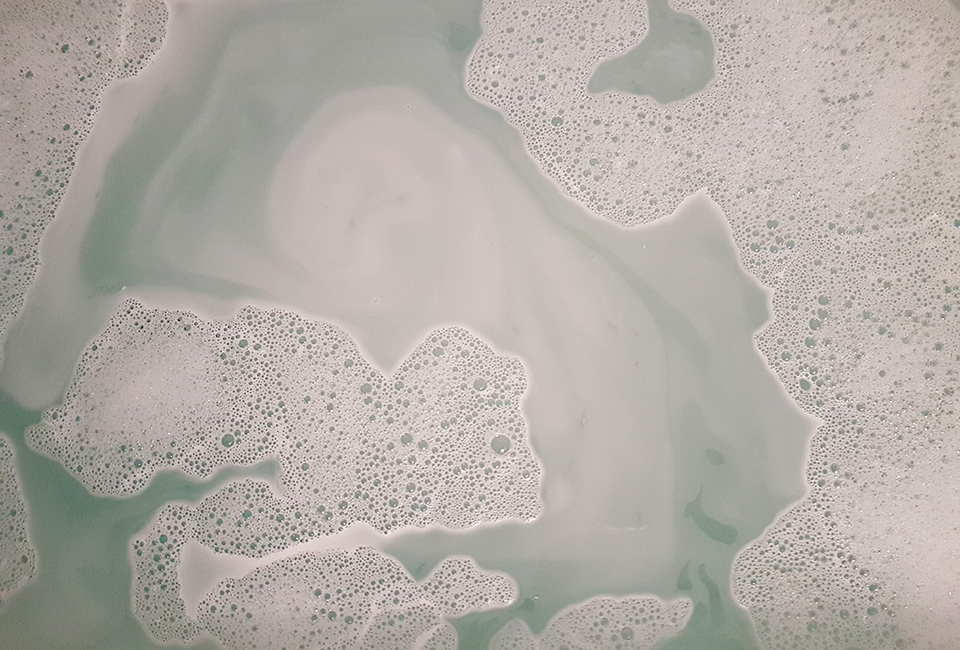Why is my toilet or sink draining slowly?
A slow-draining toilet or sink could be due to a number of reasons, including internal plumbing issues, a blocked outside tap and drain-pipe or a broken/blocked drain itself.
Who's responsible for sorting out the problem?
If there's a blockage in a drainage pipe or sewer, responsibility for fixing it depends on where the problem is.
As a homeowner, you're responsible for:
- All the pipes inside the property. These include toilets, sink drains and any outdoor guttering or pipes attached to the property.
- The section of pipe that goes into the ground, either directly or into a gully close to the property, until it reaches a shared drainage pipe or public sewer.
- Drains shared between more than one property if your home was built after 2011, unless they've been adopted by Yorkshire Water.
At Yorkshire Water, we're responsible for:
- Drains shared between more than one property which flow into a public sewer, if your home was built before 2011.
- Drains outside of the property boundary which flow into a public sewer.
- Public sewers.
Detached homes
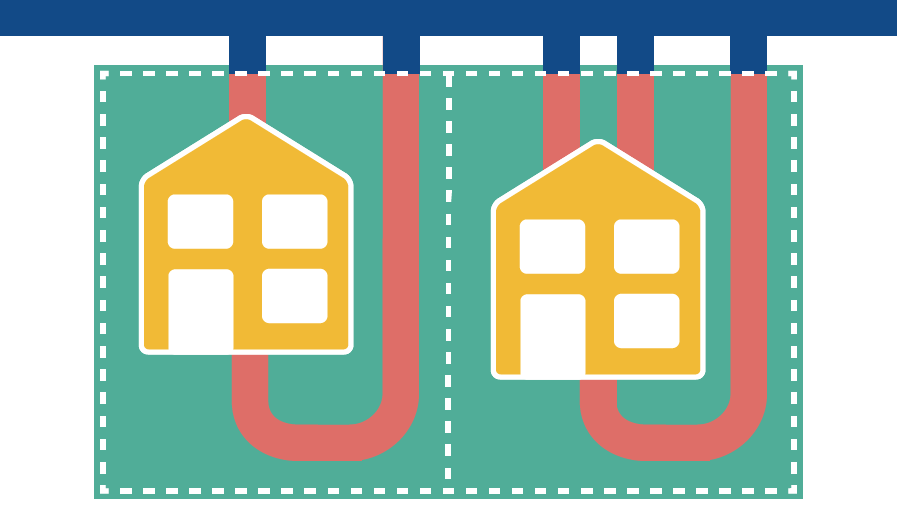
Semi-detached homes
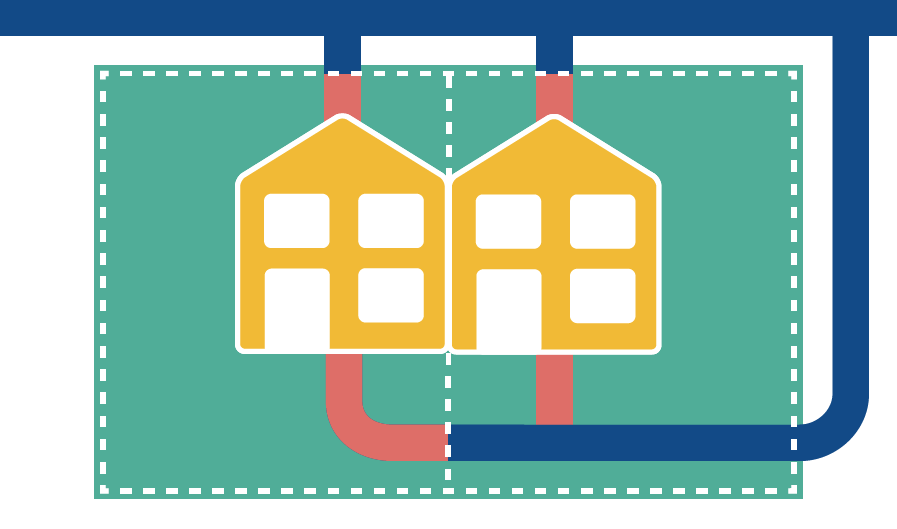
Flats or apartments
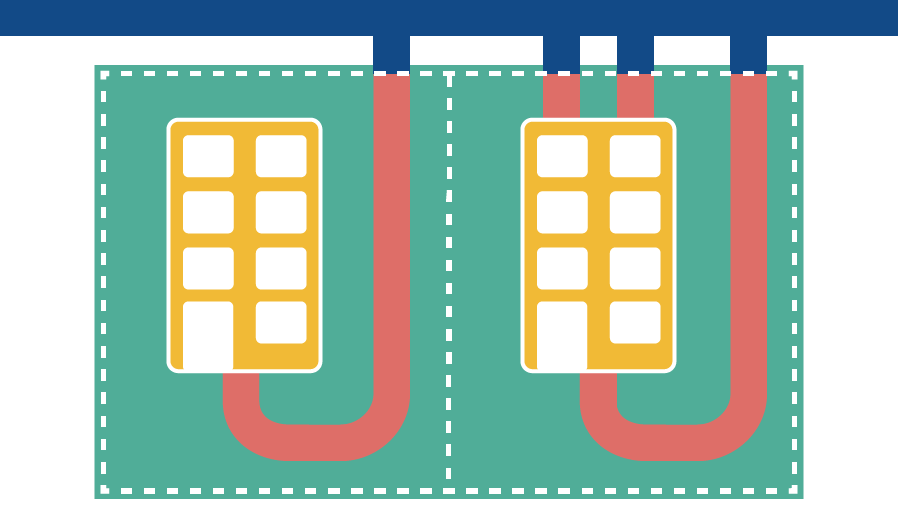
Terraced homes
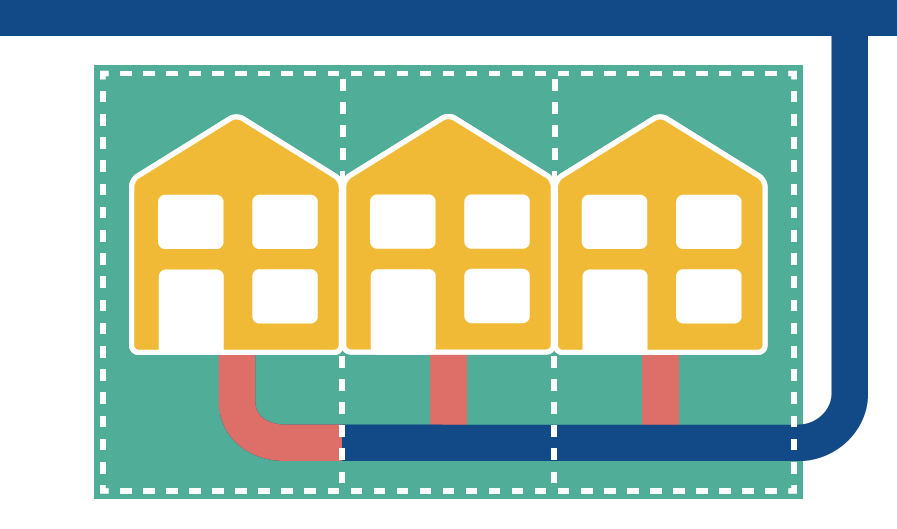
Homeowner's responsibility
![]()
Yorkshire Water's responsibility
![]()
Property boundary
![]()
To help understand whose responsibility the slow-draining toilet or sink might be, use the questions below.
Where is the blocked toilet or sink located?
If the toilet or sink is located on a ground floor or basement, check if any of the other drains in the home are slow to drain. If they are not, it could indicate it’s the homeowner's responsibility.
How many toilets/sinks are affected?
If you have more than one toilet but only one toilet or sink is affected, it can indicate it’s the homeowner's responsibility. Check other drains in the home to see if they are also affected.
Is there an issue with the flush?
If there is a temporary interruption to your water supply, it could be that there is no water to flush the toilet. Check the taps in the bathroom to see if there is water.
Do you know if any of your neighbours are affected?
If your neighbours are affected too, it’s likely that the problem is caused by a drain that belongs to Yorkshire Water.
If it’s the homeowner's responsibility
If you live in a rented property, you should contact your landlord and tell them about the problem.
If you own the property, contact your insurance company before you start looking for a drainage contractor. They will be able to give you help and advice about making a claim. If you don't notify your insurance company, it could affect any future insurance claim. We have no liability for blockages which are beyond our control, so your insurance company are best placed to help you regarding loss and damage.
If your insurance doesn't cover the problem, you'll need to contact a drainage contractor.
If it's our responsibility
1. Report it
If you've checked and your neighbours are having similar problems, then it is probably our responsibility.
2. We’ll take a look
If we have your number, we will text you on the day to let you know the technician is on their way. When they arrive, they will figure out what’s causing the problem and clean up the mess if the blockage is our responsibility. Once they know what the problem is, the technician will tell you what you need to do and explain what happens next.
Blockages on your property
If our technician finds the blockage is your responsibility, we won't be able to fix it and you'll have to contact a drainage contractor.
3. Next steps
If it's a problem with our pipework, we’ll take responsibility and sort it.
Every situation is different, so it’s difficult to know how long the problem will take to fix. If it’s a simple problem, we may be able to fix it on our first visit. Fixing big problems can be complicated and may take a while, so we may need to come back to do further work.
If we discover that the blockage has been caused by people putting fats, oils, greases or unsuitable items into the drain, we will send a letter to all those sharing the drain. Correctly disposing of waste will help prevent similar occurrences happening in the future.
Stay in control with an online account
💧 Manage your account with ease - View your balance, payment history, and bills anytime, all in one place.
📨 Go paperless - Switch to digital billing to keep track easily and reduce paper waste.
💳 Fast, secure payments - Pay your bill, set up Direct Debit, or make card payments quickly and safely.
📦 Moving made simple - tell us about a move or close your account easily.
📈 Stay in control - If you've got a smart meter, you can track your water usage effortlessly.


Protect your home for just 50p a month*
Put your home in expert hands, with home emergency cover from HomeServe. So, if the unexpected happens, you can relax knowing an approved engineer is nearby, ready to get things running smoothly again.
*T&Cs apply. Plumbing & Drainage cover available from 50p a month in the first year.


